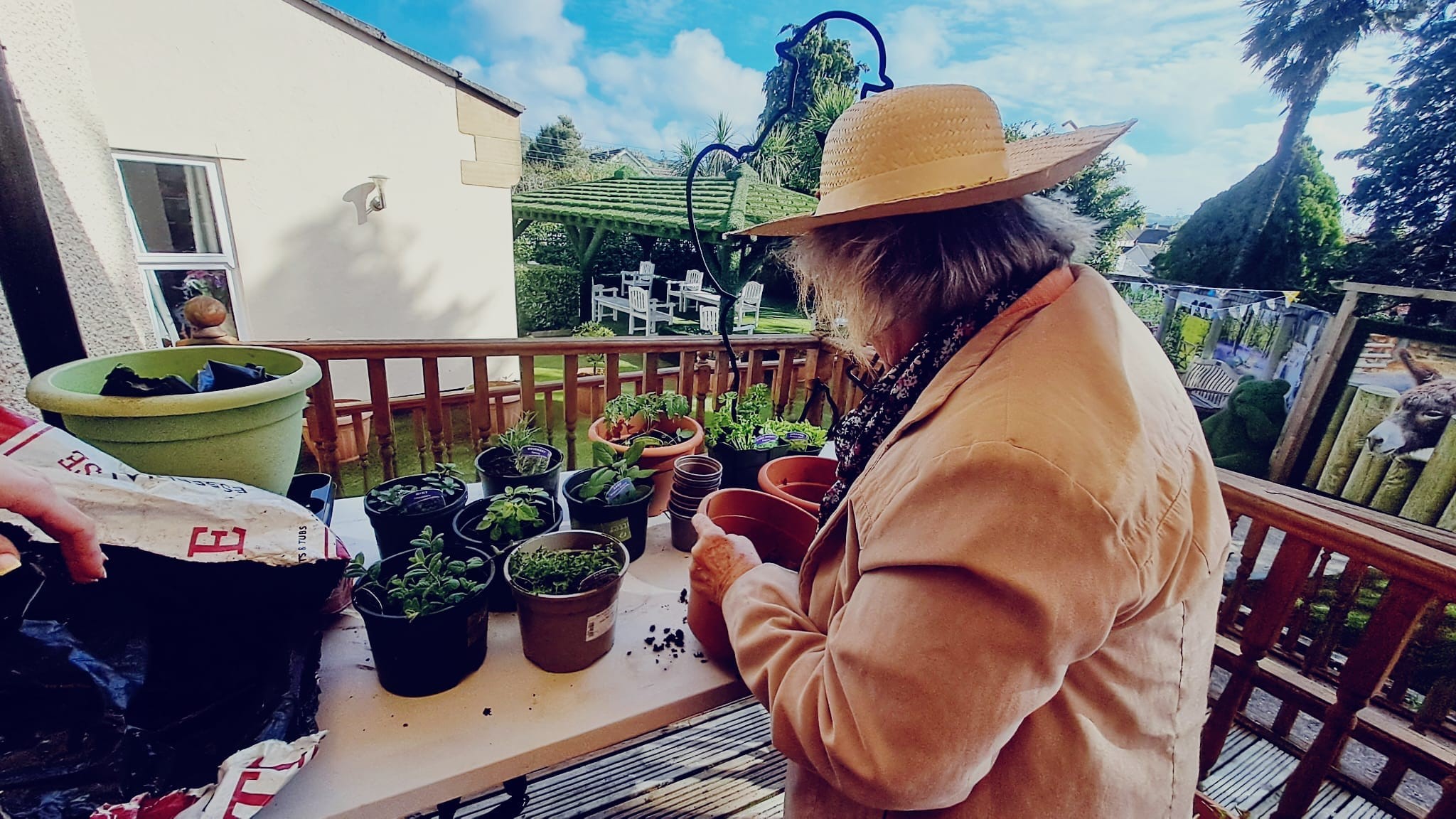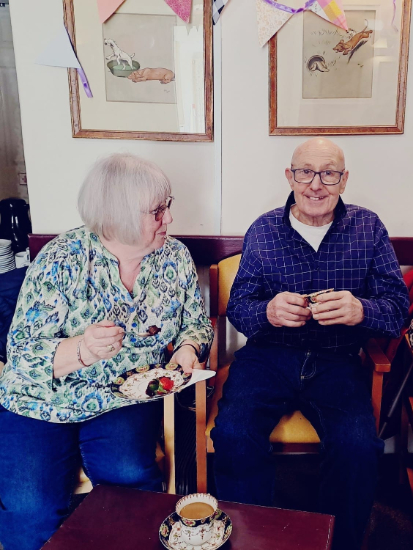What Is a Care Home?

As people age or face health challenges, everyday tasks can become more difficult. While many wish to remain in their own home, there may come a time when more support is needed to ensure their safety, comfort, and quality of life are upheld to the standard they deserve. This is where care homes play a vital role. But what is a care home, and how do they help individuals lead a rich and fulfilling lifestyle after they transition?
A care home is a place where people can receive care and support in a safe and compassionate setting. Care homes in Axminster offer different levels of assistance depending on the needs of their residents, from basic help with daily tasks to specialised nursing care for those living with complex medical conditions.
If you or a family member is considering care options, understanding the different types of care homes, the services they provide, and the most important factors to consider when visiting a care home can be extremely beneficial.
The Different Types of Care Home
One of the first factors to consider when thinking about transitioning into a care home is the types of care homes available and how they would align with the needs of yourself or a loved one.
Residential Care Homes
Residential care homes provide accommodation and assistance with daily activities such as washing, dressing, going to the toilet, and taking medication. These homes are suitable for older people who need support with personal care or would benefit from group living and companionship but do not require regular medical care. Staff are on hand to provide personal care, prepare meals, and organise social activities to promote physical and mental well-being.
Nursing Homes
Nursing homes offer a higher level of care with qualified nurses on-site 24/7. These homes are suitable for individuals with a medical condition or physical disability that requires ongoing medical supervision. Residents receive personal care as well as medical care, ensuring their health needs are properly managed in the right environment.
Dementia Care Homes
Dementia care homes specialise in caring for people in the early stages and later stages of dementia. They provide tailored care and support to ensure safety and dignity while maintaining a stimulating environment through dementia-friendly activities. Staff are trained in dementia care and work to create a familiar and reassuring atmosphere for residents.
Dual-Registered Homes
Dual-registered homes provide both residential care and nursing care. There will be qualified staff on hand to assist residents based on their unique needs and allow residents to transition through care types as their needs develop.
All-Inclusive Care Homes
All-inclusive care homes will typically offer residential care, nursing care, dementia care and respite care in one place. As well as this, all meals and facilities are included in the care home fees so they can enjoy peace of mind that they have 24/7 access to anything they need to enjoy a fulfilled lifestyle. This type of care home also allows residents to transition to different care types whilst staying in the same compassionate environment.
The right choice will depend on the individual's care needs and personal preferences.



The Services Provided in a Care Home
Personal Care
Personal care is a key aspect of life in a nursing and residential setting. This includes assistance with personal hygiene, dressing, going to the toilet, and mobility support. Staff provide compassionate care to help residents maintain their dignity and independence as they start their next chapter.
Medical Care
Medical care is available in nursing homes where qualified nurses oversee treatments, manage complex medical conditions, and assist with taking medication. For residents with ongoing health needs, this level of support is essential for maintaining their well-being. It will provide peace of mind to not only residents but their loved ones who know they have everything they need in the right environment.
Meals and Nutrition
Meals are an important part of daily life in a care home. Nutritious and delicious food is prepared on-site, with menus designed to cater to individual dietary needs. Residents have the opportunity to enjoy meals in a social setting which promotes companionship and a sense of community. Alternatively, if residents would prefer to dine in the garden when the weather permits or in their en-suite bedrooms, care home teams will support this too.
Social Activities
Social activities are organised to help residents stay engaged and active whilst creating a true sense of community. These may include day trips, group exercises, arts and crafts, and pet therapy or intergenerational activities. Maintaining an active social life can have a positive impact on both physical and mental well-being.
Housekeeping and Laundry
Housekeeping and laundry services ensure a clean and comfortable living environment. Residents do not need to worry about chores, as staff take care of cleaning, washing clothes, and maintaining their rooms and facilities.
Emotional Support
Emotional support is an essential part of life in a care home. Many residents move in during difficult times, such as after losing a spouse or experiencing a decline in health. Staff are trained to provide reassurance and companionship, particularly for those with dementia or mental health problems.
As well as residents, care home teams are available to provide support to their loved ones. Most homes will adopt an open-door policy and regularly contact family members to keep them updated on residents' care journeys or what activities they have been doing.
Considering a Care Home
Assessing Care Needs
Choosing a care home is a significant decision, and it is important to research options thoroughly to find the right fit. A good first step is to arrange an assessment with a social worker or healthcare professional. This will help determine the level of support needed and whether a person requires residential care, nursing care, dementia care or palliative care.
Researching and Visiting Care Homes
Many people begin their search online, where care homes will provide information about their facilities, services, and teams. To gain a better understanding of daily life at a care home, check our their news & events page or check their reviews on carehome.co.uk or Google. Also, checking Care Quality Commission (CQC) reports which provide official ratings on the standard of care can give you a better understanding.
Visiting in person is essential when choosing a care home. A visit allows you to observe the environment first-hand, speak to staff and current residents, check out their facilities and get a sense of the daily activities on offer.
Location and Family Support
Location is another important factor to consider. Research if there is parking at the care home or if there are local transportation options for loved ones to visit. If a loved one is moving to a new area, find out if the home can install phone lines into their bedroom or provide tablets so you can keep in touch through video calls.
Choosing a care home that encourages regular contact with family and friends can greatly enhance a resident’s quality of life.
Understanding Care Home Fees
The cost of care varies depending on the level of support needed and the services provided. Some people fund their care privately, while others receive financial assistance from the local council or the NHS following a financial assessment. Seeking professional advice can help in making the best financial decision.

Are There Other Care Options?
In-Home Care
Some people may need very low levels of care and prefer to stay at home whilst receiving support from a carer who visits them throughout the day. In-home care is a good option for individuals who can still live independently but require little assistance with tasks. This is typically provided before or whilst individuals consider the transition into a care home.
Respite Care
Respite care provides temporary stays in a care home, which can be beneficial for family members who act as caregivers and need a short break or for residents who are recovering from an illness or hospital stay and require assistance getting back to their usual routine. This type of care can also serve as a trial period and help individuals decide whether a permanent move to a care home is the right choice for them.
Silverleigh Care Home in Axminster, Devon
Silverleigh is a beautiful purpose-built care home in Axminster offering unrivalled levels of residential care, nursing care, dementia care and respite care. We have a team of highly skilled and compassionate carers who are available around the clock to ensure residents enjoy the lifestyle they deserve. Alongside our care services, we have exceptional in-house facilities available for residents to use around the clock. From our private gardens and reading room to our hair salon, bar area and entertainment program, there is something for everybody to enjoy at Silverleigh Care Home.
We understand that deciding to transition to a care home is a difficult one, and are here to support you every step of the way. We'd love to meet you, find out more about you or your loved ones' care needs and show you the difference we can make at our care home in Devon. Get in touch and book a tour today!






